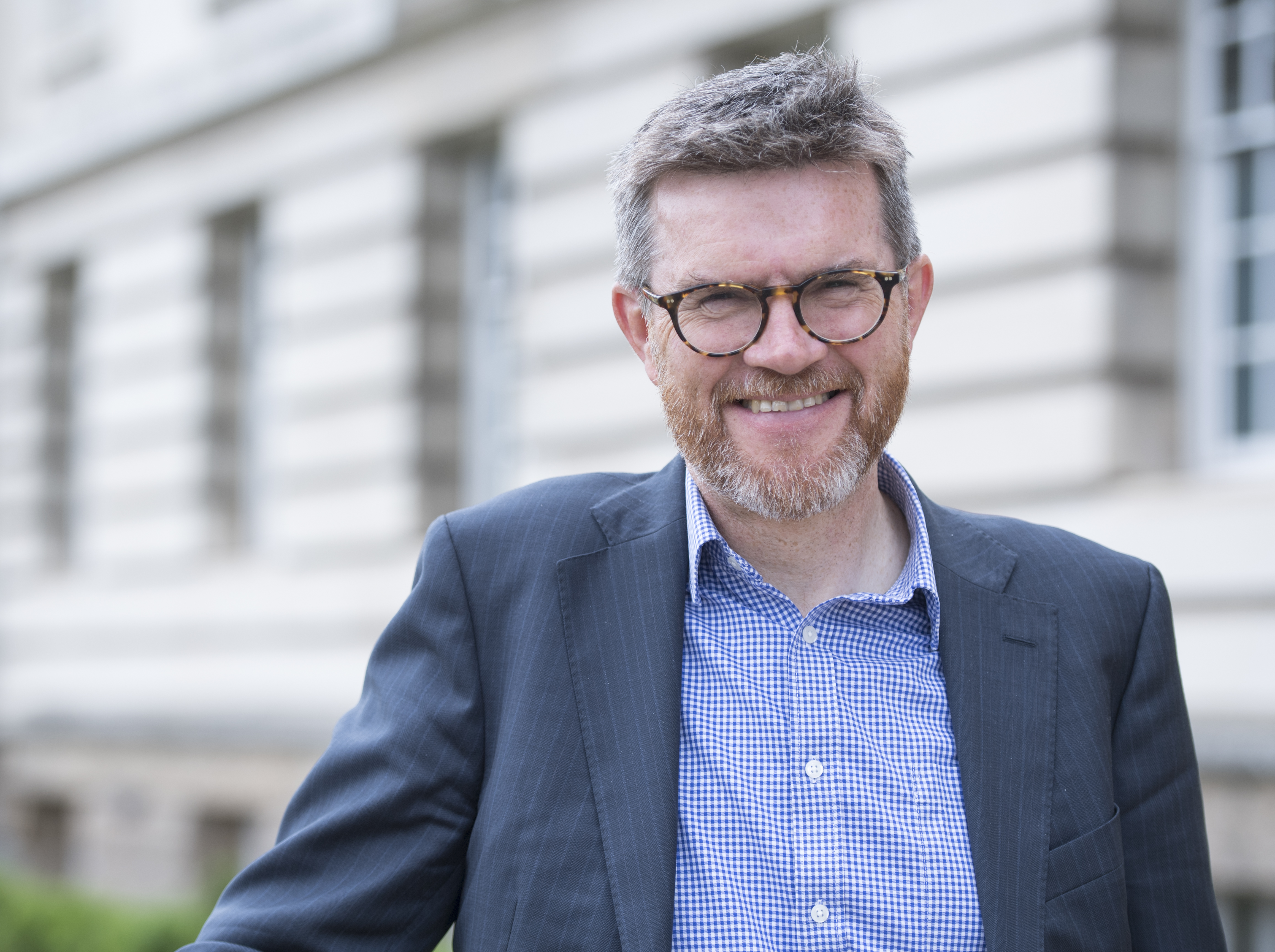
November 27, 2018, by Rob Ounsworth
Institute for Policy and Engagement: ensuring our research has the impact it deserves
It is now nearly three months since I joined the University of Nottingham to lead the new Institute for Policy and Engagement, writes Stephen Meek, Director of the Institute for Policy and Engagement.
The Institute was created to help connect our world-leading research with policymakers locally, nationally and globally, and to brigade our outstanding work on public engagement. The aim is to ensure the work we do has the impact and recognition it deserves, and that we play our part in helping solve the most important problems facing the world today.
I have been overwhelmed by the welcome I have received, and have left every meeting energised by the quality of work going on here. While I feel I have barely scratched the surface of the University, I have formed some first impressions about what difference the Institute can make.
My career has been as a policy advisor in central and occasionally local Government in the United Kingdom. So I’d like to offer five reflections on how we in the University can become more effective and impactful in engaging with policymakers.
First, policymaking is not a machine to turn evidence into action. This isn’t because evidence isn’t important, but it is only one factor in taking a policy decision. Resources, relative priorities, unintended impacts, the elected administration’s values and mandate, public attitudes, and political arithmetic are all in the mix. Just because your research has been judged outstanding by your peers doesn’t mean policymakers will automatically take notice.
Second, good policymaking is a synthetic, cross-disciplinary activity. Putting the results of research into a wider context that recognise the factors that constrain and condition a decision is always going to be more helpful than just providing the well-researched evidence (however powerful) for a single piece of the jigsaw.
Third, policymakers work to different time constraints. Even when they aren’t responding to a crisis, what looks leisurely to them is fast to us. So research presented in a concise, clear way that makes its relevance to the question obvious is always going to have the biggest impact. And these time constraints mean that building networks is invaluable. Once you are known as someone who understands what they need, the chances are they’ll ring you next time they’ve a problem.
Fourth, recognise that words carry different values in the policy world. Take ‘certainty’ as an example. Policymakers don’t have the luxury of saying “more research required,” as not doing something will often have consequences. The question is whether the evidence is strong enough to justify a course of action, not whether it will satisfy a peer review process. And when policymakers ask “what does your research say I should do?” they really mean “what does the body of evidence suggest is a plausible range of possible actions to test?” Which is why they often act with frustration when told “I don’t know but I can tell you in three years…”
Finally, as well as understanding what policymakers want, it is even better to anticipate what they need. We are often better placed to do this than they are. They will necessarily be stuck in the day to day, whereas we have the space to think ahead. This means that in two years’ time, when policymakers ask “does anyone know the answer to…,” we will be well-placed to say “we do” rather than complain that they didn’t ask the question two years ago.
These observations have shaped the Institute’s approach:
We will build capacity, so that our researchers know how to engage effectively. For example, we are already running a policy academy (fully subscribed), and will shortly be running a similar programme for public engagement. We will offer policy masterclasses, where we bring policymakers and experts in shaping policy to Nottingham to help us understand how best to have influence.
We will build the networks and partnerships so that we understand policymakers’ needs now, and can anticipate them in the future. We will help connect researchers and pieces of research to the right audiences in the right way. We will provide grants and other forms of support to help turn existing research into impact, and to help build impact into future grant proposals. We will develop fellowships and other schemes to connect us to policymaking networks.
And we will develop a role as thought leaders, so that we don’t just respond to events, but we shape them. This will come through building a reputation as problem solvers, but we will also produce a series of agenda-setting publications and conferences.
The University has strong foundations on which to build. We have some real experts in engaging with policymakers and shaping the future – people from whom I have a huge amount to learn. The Beacons of Excellence, brigading work across disciplines to answer complex questions, are well-placed to be effective in shaping policy and influencing the future.
We will give more detail on specific activities to take forward each of these themes, and on public engagement, over the coming months, as we build to our internal launch in February. If you want to offer thoughts, make sure we are aware of your work, or have any questions, please get in touch on theinstitute@nottingham.ac.uk.
No comments yet, fill out a comment to be the first


Leave a Reply